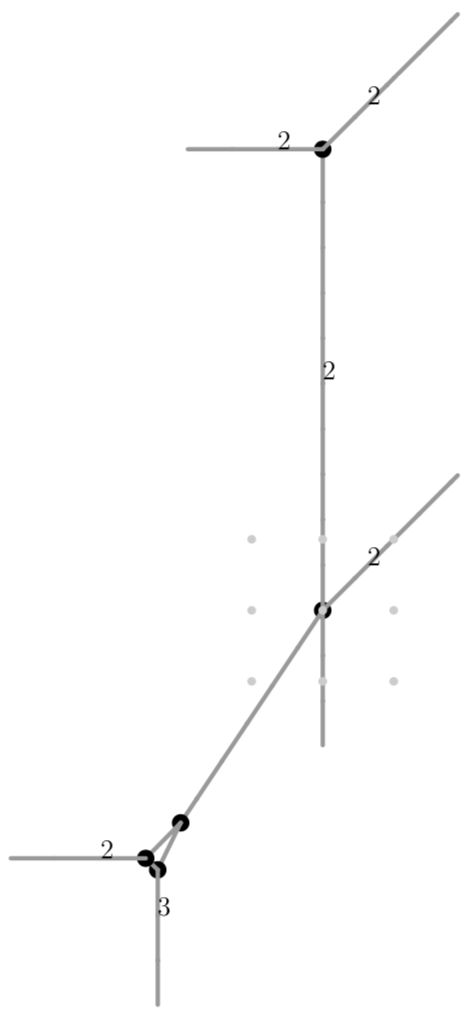Type (303)
A tropical curve of type (303) is of the form
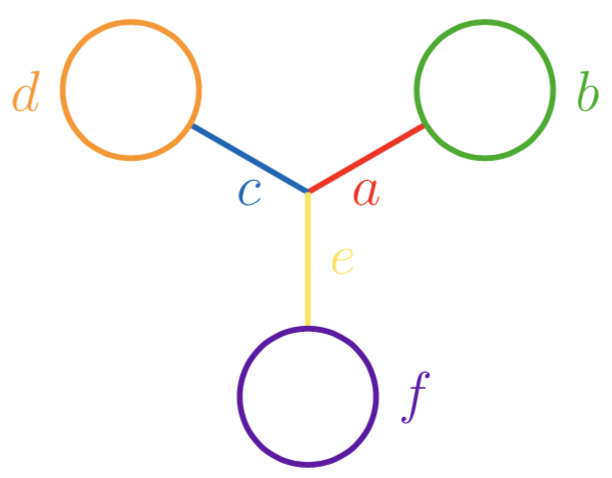
Due to symmetry, we may assume \(a\geq c\geq e\). It is never embeddable as a tropical quartic curve in \(\mathbb{R}^2\).
To illustrate how a curve is embeddable in a tropical quartic curve as a tropical plane, consider the following configuration of lengths:
For that, consider the following quartic polynomial with its highly degenerate tropical quartic curve:
poly g = (t19)*x4+x2y2+(t13)*y4+(2t6+2t5+2t4+2t3+2t2+2t+2)*x2y+(2t4+2t3+2t2+2t+2)*xy2+(t12+2t11+3t10+4t9+5t8+6t7+6t6+6t5+5t4+4t3+3t2+2t+1)*x2+(-2t2-4t-2)*xy+(t8+2t7+3t6+4t5+4t4+4t3+3t2+2t+1)*y2+(t7);
drawTropicalCurve(g,"max");
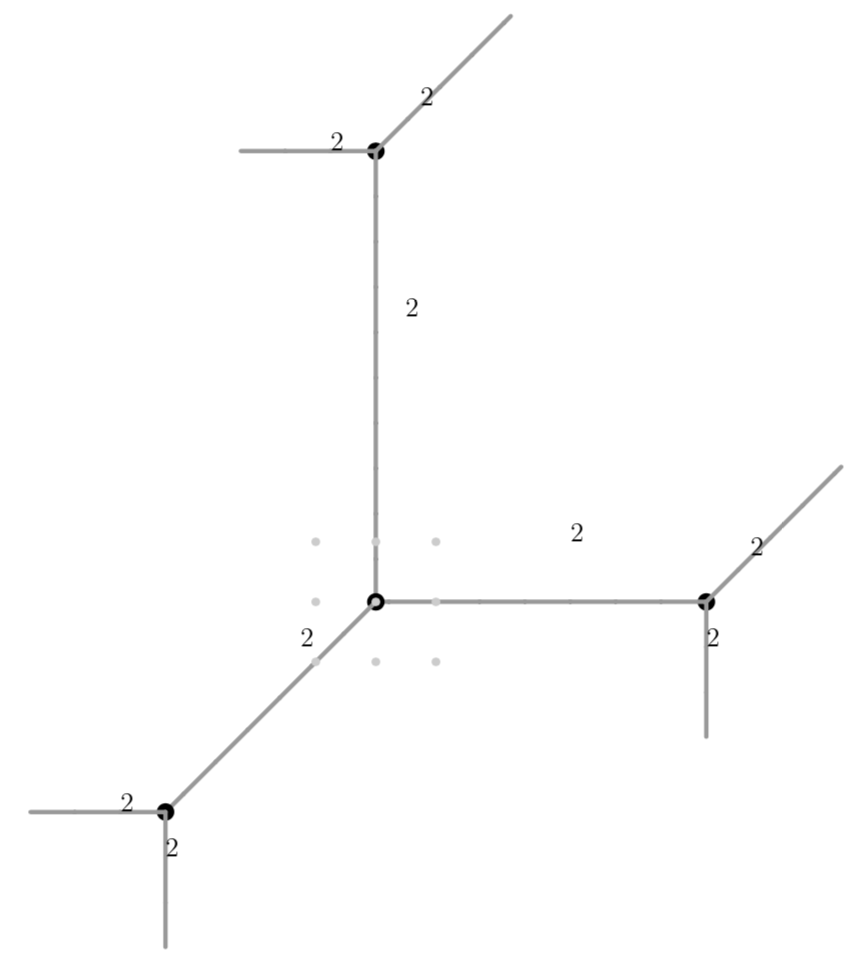
The modification \(z_1=x+1+t+t^3+t^4\), which goes along \(w_x=0\), yields the following tropical curve after projecting onto the \(z_1y\) plane (\(y\) remaining the vertical direction):
poly g1=substitute(g,x,x-1-t-t3-t4);
drawTropicalCurve(g1,"max");
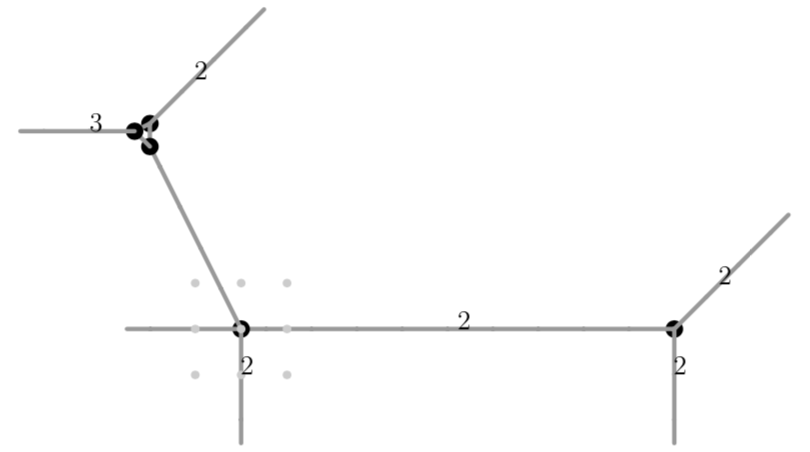
The entirety of \(w_x<0\) is mapped onto \(w_z=0\), while the edge on the line \(w_x=0\) with multiplicity \(2\) reveals a lolli with edge \(e\) of length \(1\) and cycle \(b\) of length \(1\).
Similarly, the modifications \(z_2=y+1+t++t^2+t^4+t^5+t^6\) and \(z_0=y-x-2itx\), where \(i\in\mathbb C\) denotes the imaginary number, will reveal lollis of desired edge and cycle lengths:
poly g2=substitute(g,y,y-1-t-t2-t4-t5-t6);
drawTropicalCurve(g2,"max");
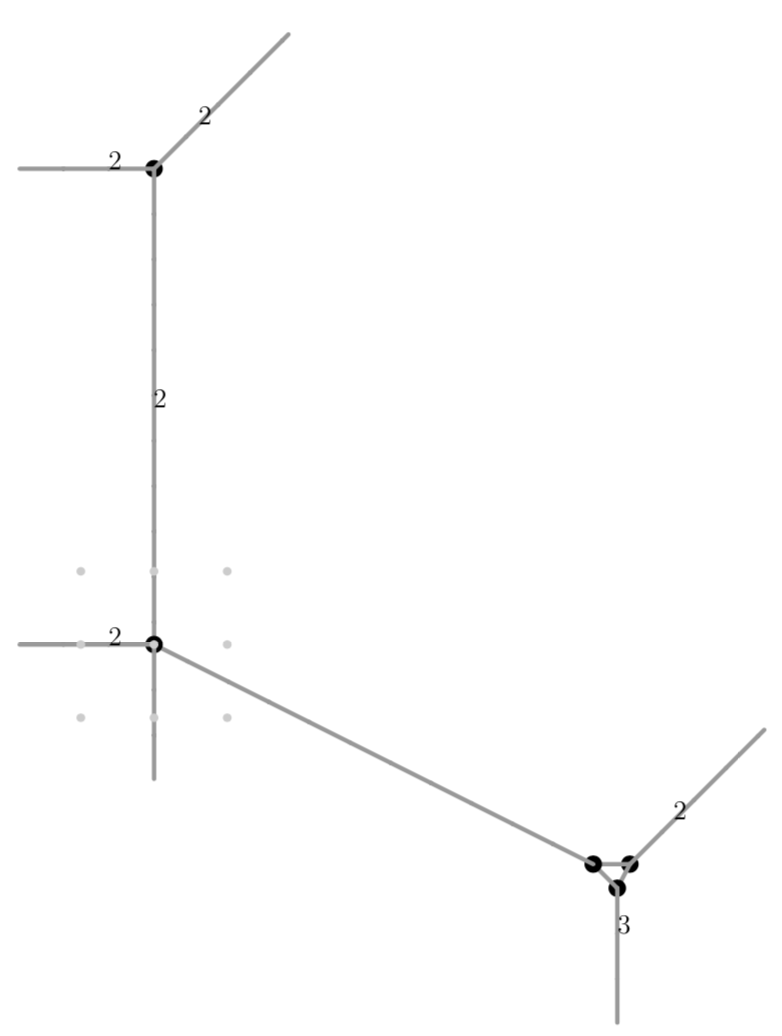
ring s = (0,i),(t,x,y),dp;
minpoly = i2+1;
poly g = imap(r,g);
poly g0 = substitute(g,y,y+x+2it*x);
g0 = subst(g0,i,15);
setring r;
poly g0 = imap(s,g0);
drawTropicalCurve(g0,"max");
(Note that we are cheating slightly in the final modification, as we are setting \(i=15\) when it comes to drawing the picture)
